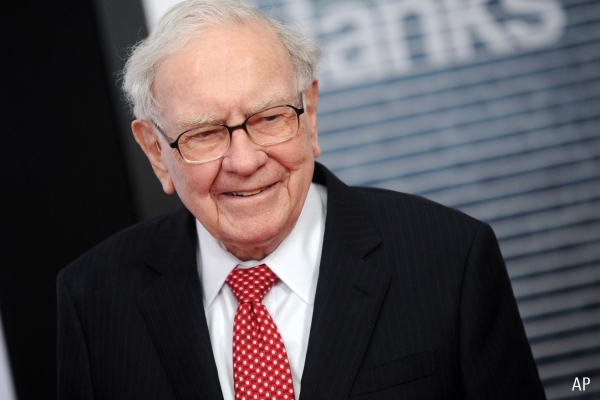How to Invest Like Warren Buffett
We highlight the details of Buffett’s investment strategy.

At its core, Warren Buffett’s investing strategy is not all that complicated:
- Buy businesses, not stocks. In other words, think like a business owner, not someone who owns a piece of paper (or these days, a digital trade confirmation).
- Look for companies with competitive advantages that can be maintained, or economic moats. Firms that can successfully fend off competitors have a better chance of increasing intrinsic value over time.
- Focus on long-term intrinsic value, not short-term earnings. What matters is how much cash a company can generate for its owners in the future. Therefore, value companies using a discounted cash flow analysis.
- Demand a margin of safety. Future cash flows are, by their nature, uncertain. To compensate for that uncertainty, always buy companies for less than their intrinsic values.
- Be patient. Investing isn’t about instant gratification; it’s about long-term success.
Buffett’s approach to investing is also embedded in the way Morningstar does business: His thinking is captured in the Economic Moat Ratings, stock ratings, and how we communicate with shareholders.
Here, we highlight Buffett’s impact on the investing world, lessons from his life, and what’s next for his style of investing.
Warren Buffett’s Investment Strategy
Despite his popular reputation as a man who can pick a winning stock, Berkshire chairman and CEO Warren Buffett is more nuanced about where his skills really lie. As he put it in his 2022 Berkshire Hathaway letter to investors: “Charlie [Munger] and I are not stock-pickers; we are business-pickers.”
Over the decades, Buffett has refined a holistic approach to assessing a company—looking not just at earnings, but its overall health, its deficiencies as well as its strengths. He focuses more on a company’s characteristics and less on its stock price, waiting to buy only when the cost seems reasonable.
The content below demonstrates this approach, and the variety of ways that you can apply these investing principles.
Other investing virtues not unique to Buffett, but prized by him, come into play at Morningstar every day: candid communication with shareholders, the patience to let an investment bear fruit, and emphasizing practical vehicles over investing fads.
The Latest on Berkshire
Below, you’ll find our most recent information on Berkshire Hathaway, from public filings and earnings, to notes and reports from Morningstar’s analysts.
Reflections on Warren Buffett’s Teachings
Buffett’s investment strategy prioritizes thinking like an owner and viewing investments as actual companies, not just as stocks.
He has long advocated for “boring” investing and the notion that the real moneymaking happens when you’re sitting back and trusting in a long-term plan instead of strapping in for a wild ride. And he continues to focus on lifelong learning, whether that means unpacking what a new product is all about or reading up on interdisciplinary subjects.
5 Key Lessons to Warren Buffett and Charlie Munger’s Success
Legendary as Buffett’s investing legacy is, his ethos on other areas of life is equally renowned.
He reminds us that as tempting as it may be to believe you earned everything, a lot is also owed to the “birth lottery”—the fact that you were born in the time, place, and body that provided you the ability to capitalize on your particular skill set. And he knows that everything is relative: Yes, his plan to give away 99% of his wealth to philanthropy is a large dollar amount, but he and his family will be just fine without it.
For more on Buffett, here are insights from Morningstar researchers past and present.
After Warren Buffett, What Will Come Next for Berkshire Hathaway?
Warren Buffett has ensured that the question of who would run Berkshire Hathaway after him isn’t much of a question at all. As early as 2006, Buffett was reassuring investors that Berkshire had succession plans in place. By 2021, Buffett had named Greg Abel, vice chairman of non-insurance operations, as his replacement.
In recent years, Abel has both taken on more management responsibilities and added to his personal stake in the company. Abel’s work has garnered effusive praise from both Buffett and Charlie Munger, with Buffett saying, “[Abel and I] think alike on acquisitions. We think alike on capital allocation. I mean, he’s a big improvement on me, but don’t tell anybody.”
After Warren Buffett, Berkshire Hathaway Likely to Return Capital to Shareholders
Abel is expected to maintain his ongoing collaboration with Ajit Jain, vice chairman of insurance operations. Buffett himself rebuffed the idea of a possible management conflict in 2023, noting: “Ajit never wanted to run Berkshire.” Buffett’s son, Howard, is projected to become nonexecutive chairman, with the role of preserving Berkshire’s culture.
Below, see more in-depth discussions about Berkshire’s future.
How Berkshire Made Money, in Buffett’s Words
There’s no better way to learn about Buffett’s investment strategy than from the man himself.
Each year, Buffett writes a letter to Berkshire shareholders detailing the past year’s results, his takeaways, and his expectations for the future. Below, you’ll find our annual recaps of some of his past shareholder letters.
The author or authors do not own shares in any securities mentioned in this article. Find out about Morningstar’s editorial policies.

/s3.amazonaws.com/arc-authors/morningstar/e82e3d30-e945-48bd-892c-a3567ae80bda.jpg)
/s3.amazonaws.com/arc-authors/morningstar/b418f4d5-8a46-4539-9800-d07e9fd86963.jpg)
/d10o6nnig0wrdw.cloudfront.net/07-02-2024/t_6b25eabdd47c4e2bb51fbb816a658179_name_file_960x540_1600_v4_.jpg)
/cloudfront-us-east-1.images.arcpublishing.com/morningstar/YWKBIVULT5DGJEIGAJGBA6H5ZA.png)
/cloudfront-us-east-1.images.arcpublishing.com/morningstar/PJQ2TFVCOFACVODYK7FJ2Q3J2U.png)
:quality(80)/s3.amazonaws.com/arc-authors/morningstar/e82e3d30-e945-48bd-892c-a3567ae80bda.jpg)
:quality(80)/s3.amazonaws.com/arc-authors/morningstar/b418f4d5-8a46-4539-9800-d07e9fd86963.jpg)